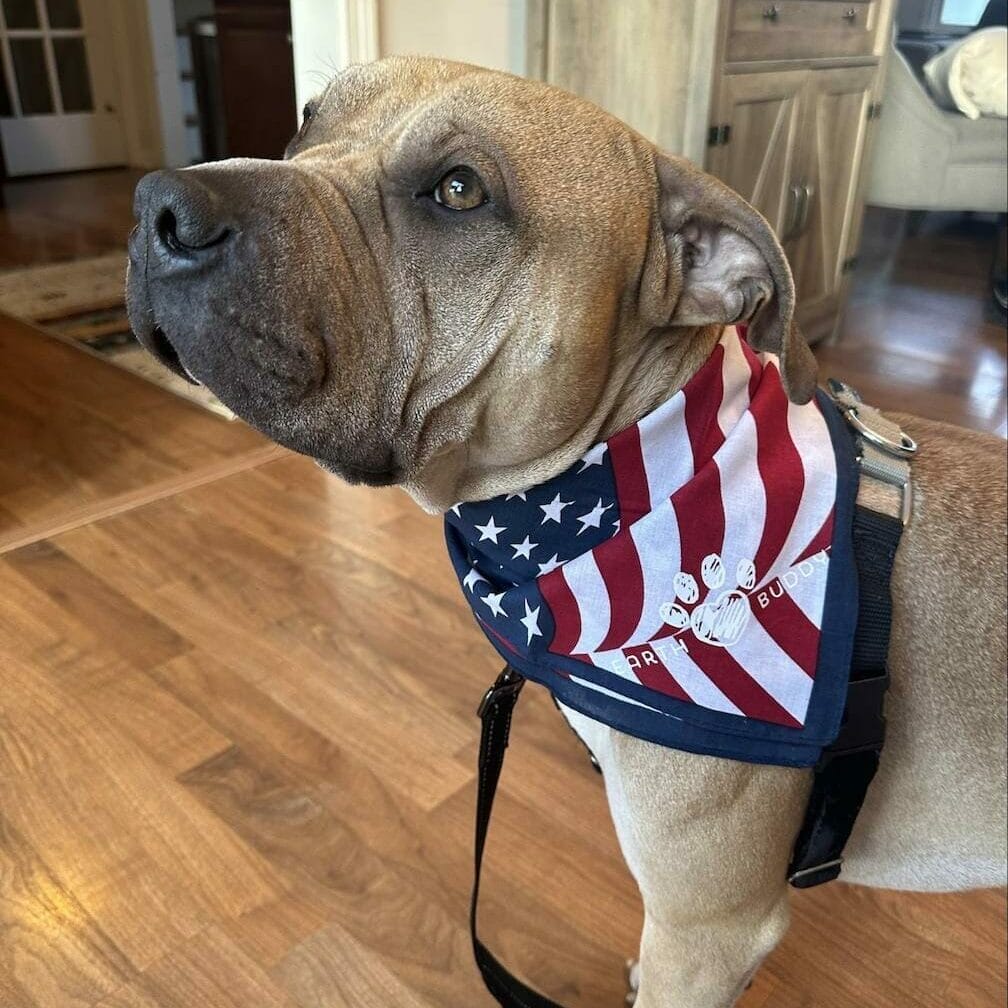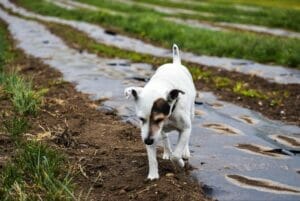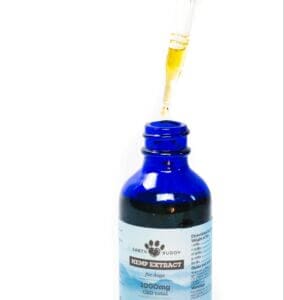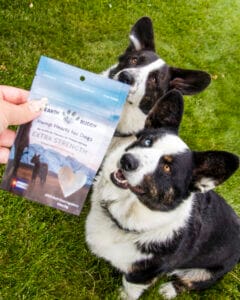A well-groomed dog is a sight to behold, but what happens when flurries of white flakes interrupt those sleek, shiny coats? You’ve probably heard of humans having dandruff, but can dogs get dandruff? The answer is yes. Just like people, dogs can indeed suffer from dandruff. Here’s a comprehensive look at what causes dandruff in dogs and what you can do to help manage it.
Can Dogs Get Dandruff?
Yes, dogs can get dandruff. Dandruff is the common term for the flakes of dead skin that shed from the body, a process that’s perfectly normal and happens continuously in all animals, including dogs. However, when a dog has visibly noticeable dandruff with a significant amount of flaky skin, it could indicate an underlying skin problem or health issue.
There are two types of dog dandruff: dry dandruff and oily dandruff. Dry dandruff usually appears as small, white flakes, while oily dandruff can manifest as larger, yellowish flakes that stick to the hair.
Causes of Dandruff in Dogs
You may notice white flakes and poor coat quality caused by your dog scratching their dry skin frequently. Several factors can lead to excessive dandruff in dogs:
- Dry or Oily Skin: Much like in humans, dogs can have skin that is either overly dry or excessively oily. Both can lead to an increase in dog dandruff production.
- Allergies: Dogs can be allergic to a variety of substances, including certain foods, environmental factors like pollen or dust mites, and even materials in their bedding. These allergies can cause skin irritation, leading to increased dandruff.
- Parasites: External parasites like mites or fleas can cause severe itching and irritation in your dog’s skin, leading to skin damage and increased dandruff production.
- Health Conditions: Underlying causes can lead to your dog’s skin changes and increased dandruff.
- Nutritional Deficiencies: A diet lacking in essential fatty acids, particularly Omega-3 and Omega-6, can cause dry skin and subsequent dog dandruff.
- Bacterial and fungal infections: Bacterial and fungal infections can negatively impact your dog’s skin health. If your dog has bacterial infections, you will want them taken care of as soon as possible to prevent secondary infections.
Your Dog’s Sebaceous Glands
Sebaceous glands in dogs are small oil-producing glands located in your dog’s skin, serving primarily to lubricate and protect the skin and hair by secreting sebum, a fatty substance. However, various factors, such as allergies or underlying health conditions, can disrupt the functioning of these glands, leading to an overproduction or underproduction of sebum. This imbalance can cause several skin issues, including dandruff. Dandruff in dogs, characterized by flaky skin in the form of white flakes, is often a result of the excessive shedding of dead skin cells, which can be exacerbated by the irregular production of sebum.
How to Manage Dandruff in Dogs
The best way to manage dandruff in dogs will depend on its underlying cause, which a veterinarian can help you determine. Your dog’s dandruff could be something simple, like an issue with food or a severe skin condition. If you’re looking for a natural dog dandruff treatment for your dog’s skin, you can try the following:
Special Shampoos for Skin Problems
Specialized dandruff shampoos can be a critical part of managing dandruff in dogs. They work by helping achieve a soft, silky, shiny, and healthy coat, rebalancing oil production, and gently removing excess flakes. Here’s a quick overview of the types of shampoos that may help a dog with dandruff:
- Medicated Shampoos: These dandruff shampoos contain ingredients designed to treat specific skin conditions. These shampoos often contain sulfur, salicylic acid, or coal tar, which help break down excess oil and remove flakes.
- Moisturizing Shampoos: If your dog’s dandruff is a result of dry skin, a moisturizing shampoo can help. These shampoos contain ingredients like oatmeal and aloe vera that helps maintain a normal inflammatory response.
- Hypoallergenic Shampoos: If your dog has sensitive skin or allergies, a hypoallergenic shampoo might be the best choice. These shampoos are formulated to be gentle on the skin and typically don’t contain potentially irritating ingredients like fragrances or dyes.
- Shampoos with Omega Fatty Acids: Some shampoos are rich in omega fatty acids, vitamins and minerals essential for healthy skin and coat, which can help nourish the skin and improve its barrier function. This can be particularly helpful for dogs with dandruff related to a deficiency in these essential nutrients.
- Natural Shampoos: Many dog owners prefer natural shampoos that avoid harsh chemicals. Natural shampoos for your dog’s dandruff can contain ingredients like tea tree oil, coconut oil, or chamomile that can support coat health and manage dog dandruff.
When using any special shampoo, be sure to follow the directions on the label carefully. Many of these products need to stay on the dog’s skin for a certain amount of time to be effective.
Regular Grooming to Prevent Skin Problems
Regular grooming plays a significant role in maintaining your dog’s overall skin health and managing dog dandruff. A consistent grooming routine not only keeps your dog looking their best but can also prevent skin conditions, distribute natural oils, stimulate blood flow, and remove dead skin cells, thereby helping maintain normal moisture content in your pet’s skin.
Here are some regular grooming practices that can help reduce dandruff in dogs:
- Brushing: Brushing your dog’s coat regularly, daily for long-haired breeds, and a few times a week for short-haired dog breeds, is crucial. It helps to distribute natural oils, remove dead hair and skin, and stimulate the skin, promoting healthy oil production to handle your dog’s dandruff. Watch for loose hair and overall hair loss.
- Bathing: Bathe your dog regularly, but not too frequently, as over-bathing can dry out the skin and lead to more dog dandruff. The appropriate frequency depends on your dog’s breed, lifestyle, and specific skin needs, but a good general guideline is about once a month. When bathing, use lukewarm water, as hot water can dry out the skin.
- Trim Hair: For dogs with longer hair, regular trimming can help manage dog dandruff. Excess hair can lead to a build-up of oil and dandruff on the skin.
Dietary Changes for Your Dog’s Skin Health
Diet plays a critical role in your dog’s overall health, and that includes the health of their skin and coat. If your dog is experiencing dandruff, certain dietary changes may help protect against food allergies.
Here are some dietary adjustments that can help manage dandruff in dogs:
- Hydration: First and foremost, ensure your dog has access to fresh, clean water at all times. Hydration is vital for overall health, including maintaining healthy skin.
- Omega-3 and Omega-6 Fatty Acids: These essential fatty acids are crucial for maintaining skin and coat health. They can help to manage dry skin and reduce dog dandruff. Foods rich in these fatty acids include fish like salmon and sardines, flaxseeds, and chia seeds. Alternatively, your vet may recommend supplements if your dog’s diet is deficient in these nutrients.
- Quality Proteins: High-quality proteins provide the essential amino acids necessary for skin and coat health. Opt for high-quality dog food that lists a recognizable source of animal protein (like chicken, beef, or fish) as the first ingredient to protect your dog’s coat health and overall well-being.
- Vitamins and Minerals: Vitamins like A, B, and E, and minerals like zinc are important for skin health. Ensure your dog’s diet is balanced and complete to provide these essential nutrients. Foods rich in these vitamins include leafy green vegetables, eggs, sweet potatoes, and fish.
- Avoid Food Allergens: If your dog has a food allergy or sensitivity, it could be contributing to dog dandruff. Common allergens for dogs include beef, dairy, wheat, and chicken. If you suspect a food allergy might be at play, consult with your vet. They may recommend an elimination diet to determine the cause of the allergy.
- Probiotics: These beneficial bacteria support overall health, including skin health, by maintaining a balanced gut microbiome. They can be found in certain yogurts, kefir, and specially designed dog food or supplements.
Supplements to Promote Healthy Skin
Dandruff can result in itchy skin that is dry and malnourished. Earth Buddy offers supplements to promote healthy skin and coat. These supplements include:
- Glutathione: Glutathione, the “master antioxidant,” promotes the body’s innate resistance to pathogens.
- Colostrum: Nutrients derived from colostrum have been shown to help support the growth of muscle, skin, collagen, bone, cartilage, and nerve tissue. This could help with seasonal environmental allergies.
- Full spectrum hemp extract: Full-spectrum hemp extract promotes healthy coat and skin by assisting in the maintenance of a normal inflammatory response.
- Medicinal mushrooms: Medicinal mushrooms support a healthy inflammatory response.
For further reading, we recommend:
- https://www.sciencedaily.com/releases/2017/11/171109100409.htm
- https://www.vin.com/apputil/content/defaultadv1.aspx?id=3866716&pid=11268&
- https://pubmed.ncbi.nlm.nih.gov/19885842/
- https://pubmed.ncbi.nlm.nih.gov/24948193/
- https://www.ncbi.nlm.nih.gov/pmc/articles/PMC7738549/
- https://www.ncbi.nlm.nih.gov/pmc/articles/PMC6380261/
- https://www.ncbi.nlm.nih.gov/pmc/articles/PMC5948976/
You Might Also Enjoy
Understanding the differences between hemp vs CBD oil is important to produce the outcomes you’re…
The interest in natural options for promoting pet health has seen a significant rise, with…
Reactive dog barking may sound intimidating, but it’s important to differentiate it from dog aggression.…





